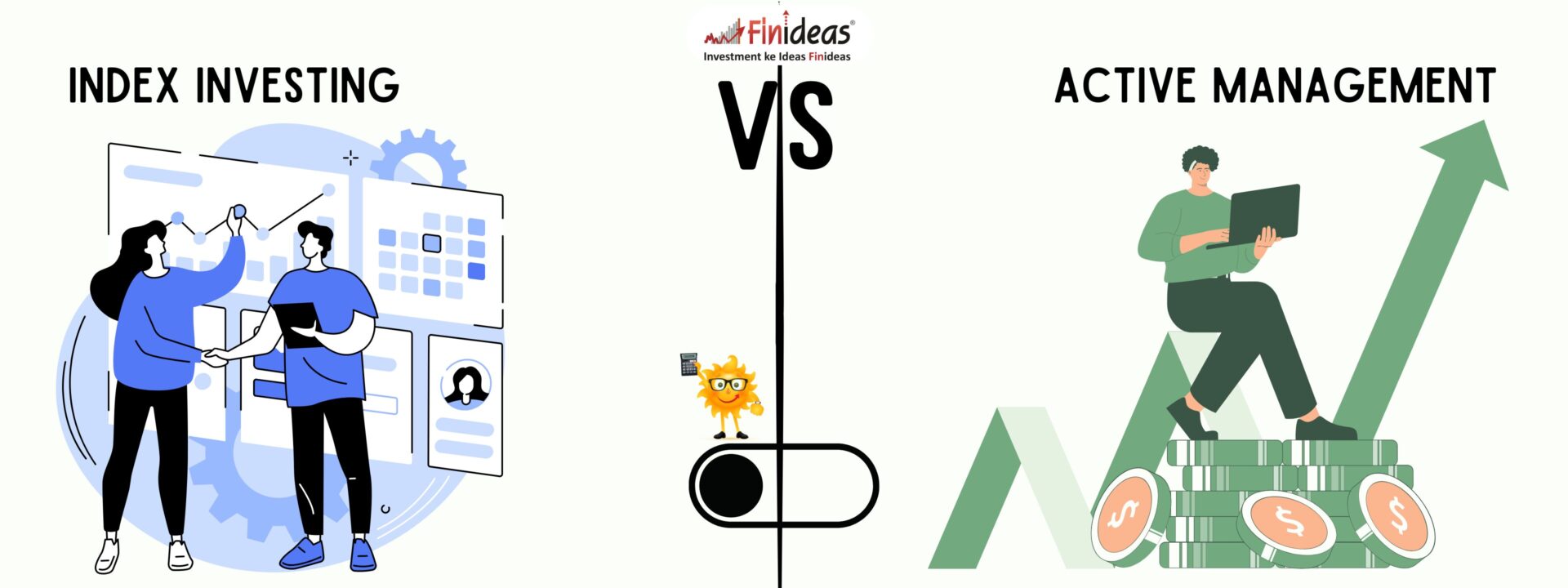Index Investing vs. Active Management: A Long-Term Performance Comparison
Welcome, investors! Today, we’re diving into a crucial decision many investors face: choosing between index investing and active management. In the realm of investment strategies, these two approaches stand in stark contrast, each with its own set of merits and drawbacks. But which one is the better choice for the Indian investor looking for long-term growth and stability?
What is Index Investing ?
Index investing, also known as passive investing, involves constructing a portfolio that mirrors the performance of a particular market index, such as the Nifty 50 or the Sensex in India. This strategy aims to match the returns of the overall market rather than outperforming it. Index funds or exchange-traded funds (ETFs) are popular vehicles for index investing due to their low costs and simplicity.
What is Active Management?
On the other hand, active management involves a more hands-on approach, where fund managers actively buy and sell securities in an attempt to outperform the market. These managers rely on research, market trends, and their expertise to make investment decisions. While active management offers the potential for higher returns, it typically comes with higher fees and greater volatility.
A Long-Term Performance Comparison
Here are four key subpoints for the long-term performance comparison between index investing and actively managed funds:
Cost Efficiency
– Evaluate the impact of fees and expenses associated with actively managed funds versus the typically lower costs of index investing.
– Factor in expense ratios, management fees, transaction costs, and other expenses that can erode returns over time.
Risk-adjusted Returns
– Examine risk-adjusted returns to determine if actively managed funds offer superior performance after considering the level of risk taken.
– Assess metrics such as Sharpe ratio or alpha to gauge risk-adjusted performance between the two strategies.
Market Efficiency
– Explore the implications of the efficient market hypothesis on the performance of actively managed funds.
– Discuss the challenges faced by active managers in consistently outperforming the market over extended periods.
Investor Behavior
– Consider how investor behavior influences the long-term performance of both strategies.
– Discuss common pitfalls such as chasing past performance or frequent trading that may impact returns.
And if you are someone who wants to invest in some good investment product you must know about Index Long Term Strategy.
Given the insights into both index investing and active management, the question arises: What investment strategy would you choose for your long-term financial goals, and why? Would you opt for the simplicity and low costs of index investing, or do you prefer the potential for higher returns offered by active management despite the associated risks and fees? Share your thoughts in the comments below!
Conclusion
In conclusion, the choice between index investing and active management ultimately boils down to your individual investment goals, risk tolerance, and time horizon. While active management may appeal to those seeking the thrill of beating the market, index investing offers a straightforward, cost-effective approach that has historically delivered strong returns over the long term. As you weigh your options, remember to consider not only potential returns but also the impact of fees, taxes, and market volatility on your investment journey. Happy investing!
Stay tuned for more insights and discussions on navigating the dynamic world of finance. Until next time, may your investments prosper and your risks be calculated wisely!
Happy Investing!
This article is for education purpose only. Kindly consult with your financial advisor before doing any kind of investment.


